Surah Al Hashr
Surah Al-Hashr begins by glorifying Allah, the Almighty, who controls the heavens and the earth. It then addresses a historical event—the banishment of the Banu Nadir, a Jewish tribe that betrayed the Prophet Muhammad (PBUH). This incident is used to demonstrate Allah’s justice and support for the believers.
The Surah also gives guidance on how war gains (ghanimah) should be distributed fairly and warns against the dangers of hypocrisy and alliance with enemies. It concludes with three powerful verses describing Allah’s attributes, which are often recited for protection and spiritual strength.
Surah Al Hashr Overview
| Surah Al Hashr Ayats | Surah Al Hashr Words | Surah Al Hashr Letter | Surah Al Hashr Ruku |
| 24 | 444 | 1914 | 3 |
Listen Surah Al Hashr Online
Colour Coded Tajweed Rules

Read Surah Al Hashr Online
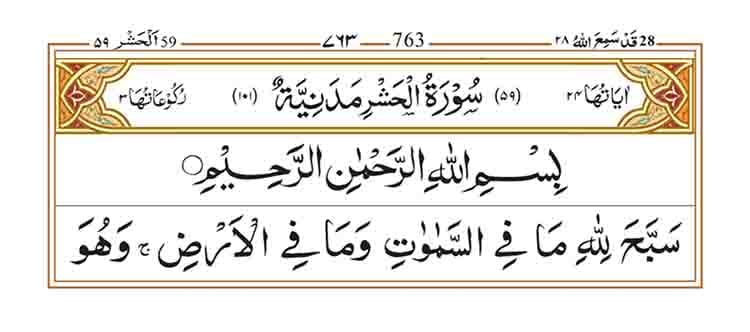
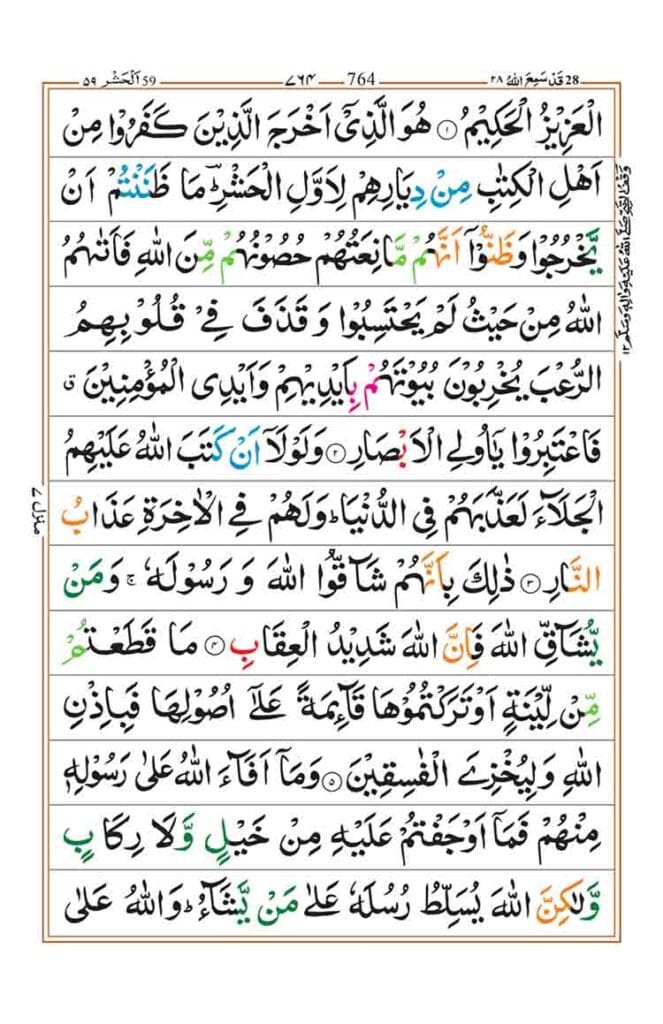
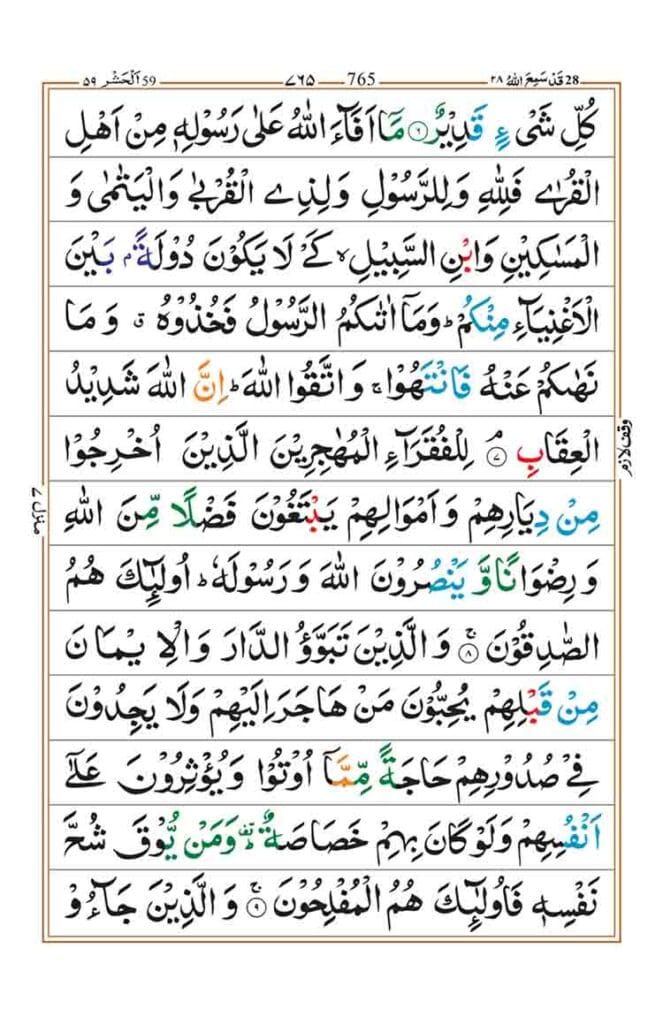
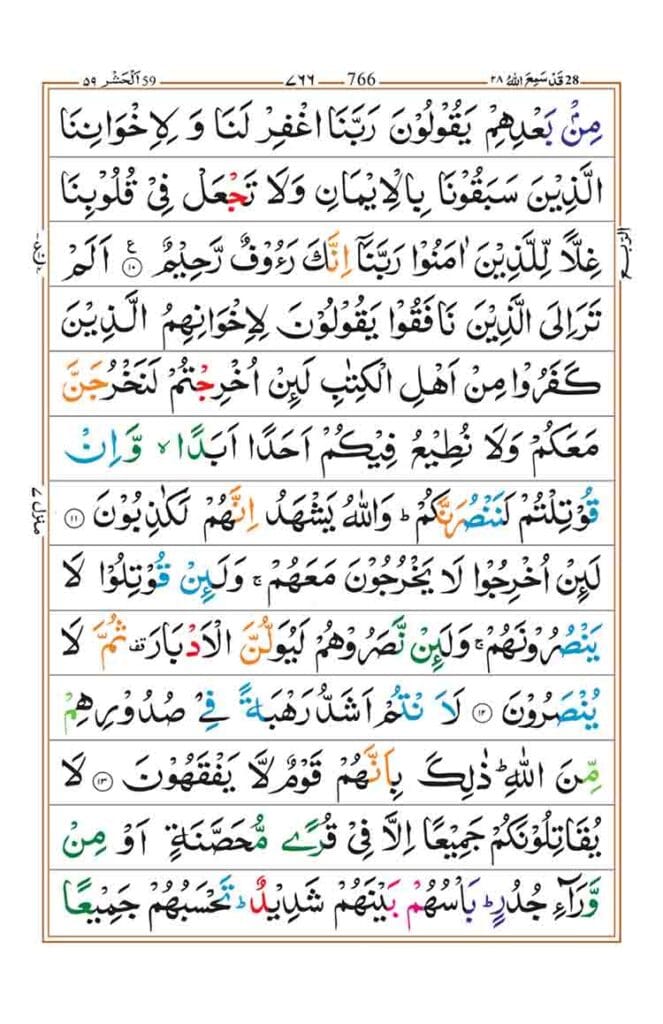
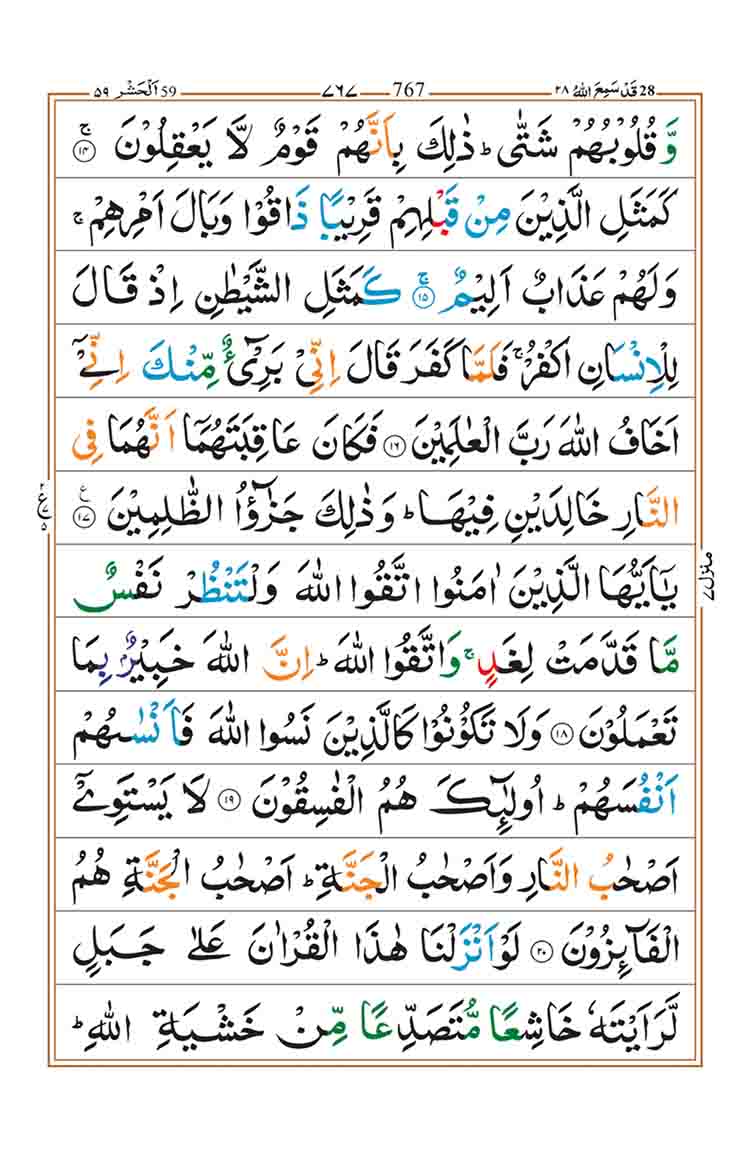

Meaning & Importance of Surah Al Hashr
The term “Al-Hashr” refers to the gathering and exile of the Banu Nadir, which highlights how Allah deals with betrayal and injustice. The Surah also teaches lessons on brotherhood, loyalty, justice, and remembrance of Allah.
Key themes of the Surah include:
The consequences of betraying the Prophet (PBUH).
The importance of unity among the believers and supporting fellow Muslims.
How spoils of war are to be distributed for public welfare, especially for the poor and new converts.
A powerful reminder of Allah’s names, attributes, and majesty.
Virtues & Benefits of Surah Al Hashr
The last three verses (Ayats 22–24) describe Allah’s 15 beautiful names and are often recited for spiritual protection and closeness to Allah.
These verses are considered to have a deep impact on the heart and soul and are highly recommended for daily recitation.
Emphasizes the greatness of Allah and encourages reflection on His divine names.
Increases faith, humility, and awareness of divine justice and mercy.
Encourages Muslims to place full trust in Allah and avoid alliances with hypocrites and enemies of Islam.
“He is Allah, besides whom there is no god, Knower of the unseen and the seen…”
(Surah Al-Hashr, 59:22–24)
These concluding verses are among the most powerful descriptions of Allah’s names and attributes, often memorized and recited for building a stronger connection with the Creator.
Read More Surahs
Surah Yaseen | Surah Maryam | Surah Yusuf |
Surah Waqiah | Surah Kahf | Surah Rahman |
Surah Juma | Surah Muzammil | Surah Falaq |
